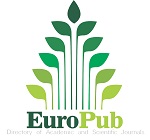Rethink Pashtun’s Historiography as a Narration of Violence, Displacement and Resistance: Applied History in Waziristan Studies
Abstract
This article tried to rethink and reconstruct a critical analysis of Pashtun’s historiography as a case study of Waziristan. This study experiment with patterns and perceptions in primary historiographical writings in comparison with the non-local writings which draw a foundational basis for the building of community in contemporary Waziristan. This is a de-ideologized and de-mythologized process of textual understanding of the Pashtun historical knowledge about reclaiming past and its reflection in the psychology of people in present. There is hermeneutical labor in the written documents which are unlearned through textual analysis. The fundamental concern of applying history for understanding the challenges which encountered by community in Waziristan. This article tried to understand the politics of narrative in the construction and reconstruction of historical consciousness and memory formation in Waziristan studies. This analysis is based on selected indigenous and native primary sources critique which produces and reproduces in the last five decades among local writers, researchers, historians and literary critics which explored regional historiographic patterns and perceptions.
Keywords: Pashtun, historiography, Waziristan, narrative, textual consciousness, epistemic violence and applied history.











